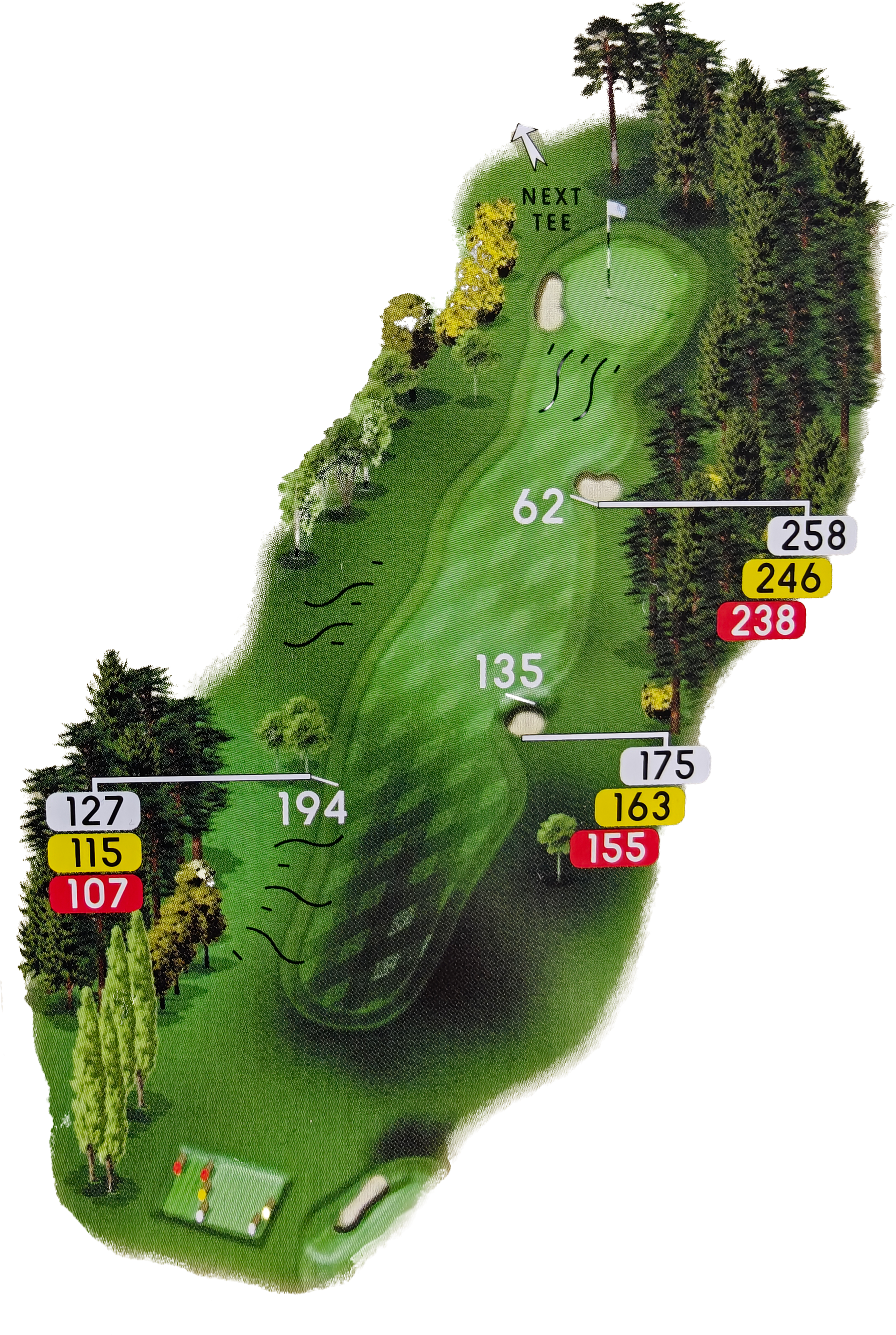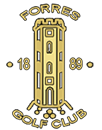Hole 3 | Knock
Although reachable for very long hitters, accuracy from the tee may be a better strategy. A miss left may lead to a lost ball down a slope containing thick rough.
Direction is key here, slightly right and you risk landing in the sand traps or further out and you will be spending time in the trees. A longer iron or fairway wood from the tee leaves a comfortable iron to the raised, bowl-shaped green. Top tip, don’t be long with your approach or you may be hitting from the same spot again!
|
Tee |
Yards |
Par |
Index |
|
White |
323 |
4 |
14 |
|
Yellow |
311 |
4 |
14 |
|
Red |
303 |
4 |
12 |

Knock Cnoc
The 3rd green at Forres Golf Club sits proudly atop a solitary rise, with a dramatic drop behind and the 2nd and 4th fairways stretching out far below on either side. It’s no wonder the hole takes its name from the Scots word “Knock” — or “Cnoc” in Gaelic — both meaning a small hill or hillock, especially one that stands alone in the landscape.
Though now softened by the trees that cloak it, the green was once more obviously perched on its own elevated mound. From the 4th tee, you can still appreciate the steep descent behind the green and the way the land falls away on both flanks, revealing the true character of this natural feature.
Knock is a common and evocative element in Scottish place names. You’ll find it across the country — from Knock on the Isle of Lewis to Knock in Aberdeenshire, and more locally in Knockomie, the area you pass when driving into Forres from Grantown. The term not only describes a physical rise in the land, but also carries echoes of history and heritage embedded in the landscape.
Other local examples include Knockando, home to the famed Knockando and Tamdhu distilleries, where the word lends its name to both the village and the whisky. Further afield, in Bannockburn, site of a rather notable scuffle with the Auld Enemy in 1314, the name combines “Bann” — meaning the summit of a nearby knock — with “burn”, the Scots word for a stream or small river.
